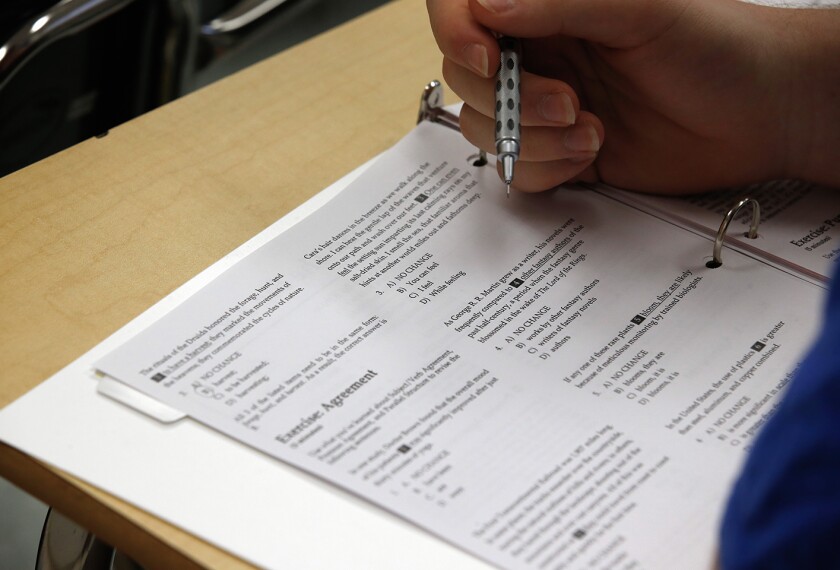It is the season for school report cards, and I’ve seen a number of news clips about student progress and overall school performance on state tests reported under the requirements of the federal No Child Left Behind Act.
But alongside the coverage of test results, a parallel story line is playing out in many places. Cheating seems to be on the rise, or at least reports and allegations of it. Some observers have noted that with higher stakes comes a greater propensity to cheat on tests. And with the threat of school reconstitution, staff firings, and student retention linked to test scores, the stakes are pretty high.
Last month, the Dallas Morning News, which has conducted an extensive investigation of state test scores over the past year, found new evidence of cheating in some schools. In this news story, reporter Joshua Benton describes the case of Forest Brook High School. The newspaper uncovered suspicious patterns in the school’s test scores over the past two years in an analysis that led to a state investigation. The Texas Education Agency concluded that there was not enough evidence that cheating was involved in the school’s impressive test results.
As Benton reports, however, “the school’s scores collapsed” this year when state monitors “watched over every stage of the testing process in an attempt to prevent any potential misdeeds.”
Similar reports have surfaced in California and other states.
Across the pond, officials in the United Kingdom are dealing with similar issues, as reported today by the BBC, which has been conducting its own investigation.
“Cheating by teachers is so extensive that Chris Woodhead, the former head of the education standards watchdog OFSTED, says the league tables used by parents to differentiate between schools have become unreliable,” this BBC story reports.
The adults aren’t the only ones feeling the pressure. Students, too, are turning to cheating to ensure good grades.
The Plymouth-Canton Community Schools, a middle- class district outside of Detroit, decided this month to ban cell phones in classrooms to help head off cheating. Other districts across the United States have already taken that step. Many also require students to have their school assignments screened by software programs that are designed to identify plagiarized materials.
Is cheating an unintended but inevitable consequence of a high-stakes testing environment?




